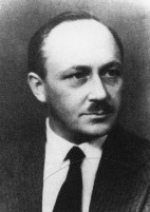
Emil Erich Kästner was a German writer, poet, screenwriter and satirist, known primarily for his humorous, socially astute poems and for children's books including Emil and the Detectives and Lisa and Lottie. He received the international Hans Christian Andersen Award in 1960 for his autobiography Als ich ein kleiner Junge war. He was nominated for the Nobel Prize in Literature in six separate years.

Erich Oswald Hans Carl Maria von Stroheim was an Austrian-American director, screenwriter, actor, and producer, most noted as a film star and avant-garde, visionary director of the silent era. His 1924 film Greed is considered one of the finest and most important films ever made. After clashes with Hollywood studio bosses over budget and workers' rights problems, Stroheim found it difficult to find work as a director and subsequently became a well-respected character actor, particularly in French cinema.
Articles related to East Germany include:

Erich Loest was a German writer born in Mittweida, Saxony. He also wrote under the pseudonyms Hans Walldorf, Bernd Diksen and Waldemar Naß.

Mittweida is a town in Saxony, Germany, in the Mittelsachsen district.

The St. Nicholas Church is one of the major churches of central Leipzig, Germany. Construction started in Romanesque style in 1165, but in the 16th century, the church was turned into a Gothic hall church. Baroque elements like the tower were added in the 18th century.

Walter Paul Sieber was a Canadian professional wrestler. He is best known for performing under the ring name Waldo Von Erich, playing the character of a villainous Prussian Nazi. He was billed as the brother of Fritz Von Erich, making him a kayfabe member of the Von Erich family.

Ulrich Plenzdorf was a German author and dramatist.

Ulrich Matthes is a German actor. He is best known for having played Joseph Goebbels in the 2004 film Downfall.

The given name Eric, Erich, Erikk, Erik, Erick, Eirik, or Eiríkur is derived from the Old Norse name Eiríkr.

Erich Pommer was a German-born film producer and executive. Pommer was perhaps the most powerful person in the German and European film industries in the 1920s and early 1930s.

The Federal Foundation for the Reappraisal of the SED Dictatorship is a government-funded organisation established in 1998 by the German parliament.

Christian was a Protestant pastor and one of the leading figures and organisers of the 1989 Monday demonstrations in East Germany which finally led to German reunification and the end of the GDR in 1990.
Ernst Marischka was an Austrian screenwriter and film director. He wrote for more than 90 films between 1913 and 1962. He also directed 29 films between 1915 and 1962. He wrote and directed the Sissi trilogy - Sissi (1955), Sissi – The Young Empress (1956) and Sissi – Fateful Years of an Empress (1957). The films were based on the life of Empress Elisabeth of Austria. He was the brother of Hubert Marischka. He was named for the Academy Award for Best Original Screenplay in 1946, for A Song to Remember (1945).
The Hans Fallada Prize is a German literary prize given by the city of Neumünster in the German state of Schleswig-Holstein. Since 1981, it is typically awarded every two years to a young author from the German-speaking world. It is named in honor of Hans Fallada, a famous 20th-century German author known for addressing political and social problems of his day in fiction.

The German Institute for Literature is a part of Leipzig University and offers university education for writers. It was founded in 1955 under the name Johannes R. Becher-Institut, at that time in the GDR. Among the noted writers who graduated from the school are Heinz Czechowski, Kurt Drawert, Adolf Endler, Ralph Giordano, Kerstin Hensel, Sarah and Rainer Kirsch, Angela Krauß, Erich Loest, Fred Wander, Clemens Meyer, Juli Zeh, Kristof Magnusson, Anna Kaleri, Volker Altwasser and Werner Bernreuther.

Jutta Wachowiak is a German actress. She has appeared in more than 60 films and television shows since 1962. She starred in the 1986 film So Many Dreams, which was entered into the 37th Berlin International Film Festival.

Erich Karl Heinrich Kettelhut was a German production designer, art director and set decorator. Kettelhut is considered one of the most important artists in the history of early German cinema, mainly for his set direction for Die Nibelungen (1924) and his design and visual effects for Metropolis (1927). His early career was defined by a working relationship with fellow designers Otto Hunte and Karl Vollbrecht, the trio working on many of Fritz Lang's early German films. Despite being best known for his iconic visuals on several of the most important films of German Expressionist cinema, he is also noted for a career spanning into the 1960s and his work on more light-hearted films and musicals.

Red is a series of American action comedy films inspired by the limited comic-book series of the same name created by Warren Ellis and Cully Hamner, and published by the DC Comics imprint Homage. The film stars Bruce Willis, Morgan Freeman, John Malkovich, Mary-Louise Parker, Helen Mirren, and Karl Urban with German film director Robert Schwentke directing a screenplay by brothers Jon and Erich Hoeber.
Roger Melis was a German photographer specialising in portraiture, photo-journalism and fashion photography.















